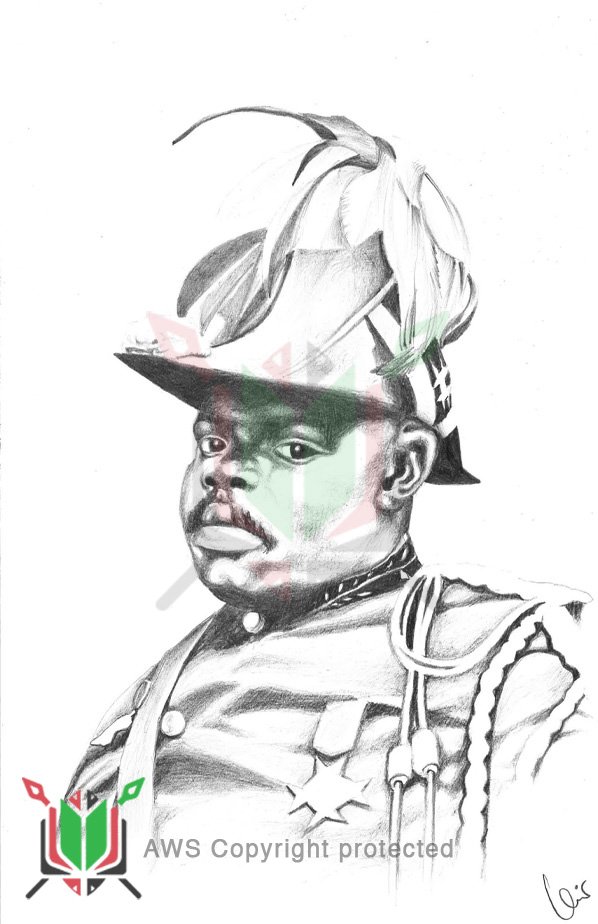
Marcus Mosiah Garvey (1887-1940)
National Hero-Jamaica; Activist, Pan-Africanist, Founder- UNIA, Organizer – Black Star Line, Founder -Negro World,
“Man with a Vision- Man on a Mission”
Meet Marcus Mosiah Garvey
“A people without the knowledge of their past history, is like a tree without roots” Marcus Mosiah Garvey
Arguably, Marcus Garvey was the most influential Black leader of the twentieth Century. He was a man with a vision and he was on a mission to improve the social, economical and educational well-being of the African people. His vision was to get Africans to return to Africa, his mission was to facilitate this movement as much as he possibly could without violating laws. One of his most controversial philosophy is : If you are black, you are an African. He encouraged on his race with comments like: “Up you mighty race! You can achieve what you will”
Born in Jamaica, a small island which was a part of the British Colony in the Caribbean, then referred to as the West Indies, Marcus Mosiah Garvey Jr. rose from humble beginnings to become the Island’s first National Hero, the highest National Order that is conveyed on any individual . His father was a mason while his mother was a household helper.
Garvey’s father was an avid reader and by the time Garvey was born in 1887, he had amassed a large library of books which was always at his son’s disposal. From this early exposure to books Marcus developed an affinity to reading, also he was mostly self-taught with some help from his father, Marcus Garvey sr. Marcus Garvey jr. philosophies now known as Garveyism, are officially taught in many institutions.
Achievements
Although slavery had been abolished before his birth, the Island was still under colonial rule and Marcus Garvey experienced various incidents of racism while attending school in St. Ann’s Bay, one of the island’s 14 parishes. Garvey began his working career as an apprentice printer at age 14 and two years later in 1903, he moved away from the rural area to Kingston, the Island’s capital. It did not take long for Garvey to become an activist as he became involved in union activities. Garvey had some knowledge of his roots that he had garnered directly from his parents, also from the books in his father’s library. This combined with his practical experience with racism, the adrenalin he felt from taking part in an albeit unsuccessful workers’ strike provided the impetus he needed to become a political activist. Garvey was 20 years of age and had not only the energy but had began to form his own political views which at that time was considered radical. In 1910 Garvey boarded a ship on the first leg of a political journey that would make famous or infamous, depending on the reader.
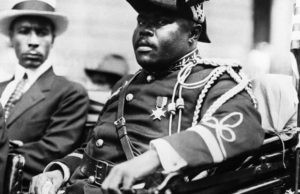
On his first trip abroad, Marcus Garvey visited Costa Rica where he had a maternal Uncle with whom he boarded for some months. While there he found employment on a banana plantation as a timekeeper and later on as editor of La Nacionale, a daily newspaper publication. Garvey had the wanderlust and was not satisfied with his experiences so far, he later moved to Colon, a city in Panama where he had no problem getting another job as an editor for a bi-weekly publication. In 1912 he returned to Jamaica and continued to feed his voracious reading appetite by reading articles and any publications that focused on civil rights. He was impacted by the Civil Rights movement which eventually influenced him to become a political activists himself. Garvey was particularly influenced by the nationalist ideas of Booker T. Washington, an African-American, Pan-Africanists who touted political opportunities for the Africans. He rated above others any black activists who had rejected plantation living and Colonial rule and was able to sustain themselves. He admired the black entrepreneurs.
Garvey left school at age 14 years and was chiefly self-taught. He realized the importance of a good education if he is to succeed in his vision of helping blacks to gain economic independence and return to Africa if they so desired. He also knew that Africans had a better chance of succeeding if they were educated, united and supportive of each other. He went to London, England for two years where he studied law and philosophy. He returned to Jamaica two years later where he started the Universal Negro Improvement Association; the UNIA in 1914. Garvey got the idea for the name of the movement during a conversation he was having with a fellow passenger on a ship en route from Southampton, England to Jamaica. There was an African couple on board who was returning home from a trip to his homeland; Basutoland, Africa and he informed Garvey of the squalor in which the black Africans lived. Garvey was deeply affected by what he heard and started thinking there and then of ways he could help to improve the economic and social status of Africans, also to reestablish the once potent African culture. In a sense, the UNIA was simply an abbreviated term of what he planned to achieve; global improvement for the social, economical and educational standard of the negro race.
There is a quote taken from the book, the Holy Bible that sums up the relationship between Garvey and colonial Jamaica: “A prophet is not without honour, save in his own country, and in his own house.” Matthew 13: 57; KJV and this was very true of Marcus Garvey when he started the UNIA in 1914. Disappointed with the reception he received at home, Marcus Garvey headed to the United States of America (USA) where he started a branch of the UNIA in Harlem, NYC in 1919 to 1926. This was recognized as the first major/important organized Black Nationalist movement and in less than three years was estimated to have a membership of 2,000,000. This was no mean feat as racism, segregation and white power was the “order of the day”. Garvey was smart and he went into the low income areas/ ghettos on the northside of the city where he gained the majority of his followers. Garvey donned an ostentatious General costume to include a plumed helmet which made him noticeable whenever he walked down a street. Some thought that he chose this method of dress to impress the populace but Garvey had other intentions. He knew that if he wanted to get the attention of his people he had to “standout” from the masses. His intention however, was not merely to get a large following but to educate the poorer class about their origins, culture and ways in which they could improve their economical and social status.
Marcus Garvey could be called the father of Pan-Africanism and Afrocentrism as he was the first to make a tangible effort to get Africans to start and invest in African businesses so as to become more independent of the white culture which they were forced to adopt in order to survive slavery. He was not only a very good orator, he was a true “activist” in the sense that he was a man of action. The impact Garvey made at age 24, many leaders have not made during their lifetime. Garvey led by example. He was not a violent man, yet he was a formidable opponent. Unlike many leaders whose political careers began when they became adults, Garvey’s passion was ignited while he was still a boy, at age 16 when he left home in 1903. His energy was beyond compare and he never contemplated failure at any time, obstacles were mere challenges that needed to be overcome. “If you have no confidence in self, you are twice defeated in the race of life”; followed by; “ With confidence, you have won before you have started’” are two of Garvey’s philosophies by which he lived. He had no fear of failure and this led to one of his largest entrepreneurship, the incorporation of the Black Star Line.
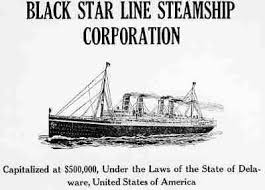
The “Back to Africa” Movement
Marcus Garvey was nicknamed the Black Moses. Garvey’s concept of getting Africans to return to Africa was gaining traction. He knew that without a means of transportation his theory would appear to be like a pie in the sky; visible but unattainable, also the less visionary would scoff at such an ideal. To show that this was not merely a pipe-dream, to this end Garvey formed the shipping corporation “Black Star Line. Like Noah who built an ark in anticipation of a flood and was mocked and ridiculed, so was Garvey who started a shipping line without a ship; yet they were both vindicated. The idea was to have a shipping line opposite the White Star Line to facilitate trading between the Americas and Africa. Eventually the line would increase so as to not only provide a service for goods but to assist in returning Africans (who so desired) to Africa. There were many blacks who joined the whites in criticizing and ridiculing Garvey and this particular idea but there were many more who saw the feasibility of such a venture and these people bought shares in the company. Garvey’s response to the black naysayers was: I have no desire to take all black people back to Africa; there are blacks who are no good here and will likewise be no good there. This statement is but one sentence of many profound evaluative speeches made by Marcus Garvey. In fact, all other Black historians, Afrocentrists, Pan-Africanists who came after Garvey, quote his philosophies in their speeches.
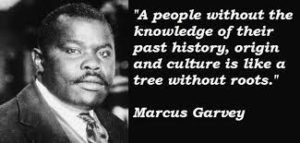
If the enemy could only know that Marcus Garvey is but a John the Baptist in the wilderness, that a greater and more dangerous Marcus Garvey is yet to appear, the Garvey with whom you will have to reckon for the injustice of the present generation.
He likened himself to John The Baptist, the religious figure who in the Holy Bible warned of the coming of Christ. Garvey was not professing himself to be John the Baptist, he was merely using a metaphor to show that there will be someone coming to whom they will have to answer for the injustices being meted out to the black/ African people. White leaders saw Garvey as a potential threat to their economy as it appears as if he may become successful in stemming the supply of cheap labor by influencing black-americans to migrate to Africa. Aware that this was no “ordinary negro,” that Garvey had not only the ideas but also the leadership skills and charisma to succeed, he was made a “target” of hate by white capitalists and politicians.
Marcus Garvey the Entrepreneur
With speeches like: “There is no force like success, and that is why the individual makes all effort to surround himself throughout life with the evidence of it; as of the individual, so should it be of the nation” and “God and Nature first made us what we are, and then out of our own created genius we make ourselves what we want to be. Follow always that great law. Let the sky and God be our limit and Eternity our measurement;” Marcus Garvey was the most hard-working black entrepreneur of his time. He not only preached Black Power, he breathed and lived Black Power. From the UNIA platform at Liberty Hall in Harlem, he promoted the concept of the “new negro”, the one who was not only independent but also proud of his black skin. He started a black newspaper; the “Negro World”, which provided a source for informing African-americans about the their origin, culture and heroic feats of their ancestors. He encouraged blacks to start their own businesses and to support each other so as to become economically independent. Garvey theorized that if black people were to become economically strong, no longer in need of the “benevolence” of their former masters, they would reclaim their space in history; that of being a proud, strong independent people. To support his theory Garvey started the Negro Factories Corporation and the Black Star Line in 1919. He also invested in a chain of restaurants, grocery stores, laundromats, hotel and his own printing press.
Most naturally, this was like a “slap in the face” of white colonists who were dependent on keeping the negro race dependent upon them to provide their needs, albeit of a pitiful existence in most circumstances. They were furious and Garvey was branded an instigator of social unrest. Garvey went about holding public meetings, opening up the ears, eyes and minds of those who were willing to listen. One of his most famous quote: Emancipate yourselves from mental slavery, none but ourselves can free our minds! resonated not only with black audiences but to everyone who heard. Liberate the minds of men and ultimately you will liberate the bodies of men. Garvey was gaining not only a large following but also the attention of white industrialists who did not take kindly to Garvey’s philosophies. He was reported to the “government” and became a target of the Bureau of Investigations (BOI) now renamed the Federal Bureau of Investigations (FBI).
Black Star Line
Confident not only in his ability but in the ability of other Africans/ blacks/negroes to apply themselves to and succeed at managing the shipping line, the Black Star Line was launched as a Delaware Corporation in June 1919. Three months after being incorporated, the first ship in the inauguration of the Black Star Line fleet was purchased. This not only silenced the critics but heightened the awareness of Garvey’s leadership abilities. Fear of Garvey’ was building in the white business sector. The danger he posed was that of being intelligent and fearless to think of ways to sustain a black economy and to actually implement his ideas. If he succeeded in building a reliable fleet he may not only acquire some of the trade between Africa and the “new world”, but may eventually succeed in starting the largest migration in history and this would cripple the white economy. The white supremacists relied on the black for cheap and often times free labor. Who would do the work if Garvey succeeded? A black business that started with $500,000 in stocks, which was a large operating capital at that time, and had the capacity to increase to $10,000,000 in the space of six months was indeed a threat to white capitalists.They befriended some of the directors on the board of the Black Star Line and influenced/bribed them to buy defective vessels at exorbitant prices.
The first ship; the SS Yarmouth was originally a coal boat in need of some repairs. The intention was to repair and rename the ship then use it as a “test” vessel with an all black crew, including the captain Joshua Cockburn who was influential in its purchasing. Cockburn was later accused of receiving a bribe/kickback in relation to deal he made with the merchant. Although this old coal boat which had been used in WW1 was over-priced, the corporation was able to get it repaired to sea-worthiness and it operated between the West Indies and the US for three years, trading in rum/whiskey and other commodities. The other ships purchased were even in worse condition than the Yarmouth, the SS Shady sank within a year while the SS Antonio Maceo blew a gasket which killed a man in the process. The Black Star Line was not only been undermined by unscrupulous business associates but also by the US federal government.
Between the mismanagement of its resources and being infiltrated and sabotaged by the Federal Bureau of Investigation (FBI), then known only as the Bureau of Investigation, the Black Star Line had started to incur heavy losses. As Garvey stated: The enemies are not so much from without as from within the race.
Basically, it would have been almost impossible for a white man to infiltrate the organization without the assistance of a black man. Who was going to believe a white man during that period walking into a black business and offering assistance, without having some ulterior motive? Certainly not Garvey! However, he believed that those he entrusted to see to the affairs of the corporations under the UNIA were all people of integrity who were genuinely interested and invested in the well-being of the negro race. A negro, James Wormley Jones was hired to infiltrate the corporation so as to find a means of getting rid of Garvey. Wormley, an apt name for the part he played, the first black agent to be hired by the Bureau, was sent undercover to investigate Garvey and the activities of the Black Star Line. Nothing illegal could be found barring a flyer with the picture of a ship for which the company was negotiating the purchase of but had not yet acquired. Eventually, in 1919, J Edgar Hoover who was then director of the BOI, stepped in before the purchase was completed, indicted Garvey and three other executives with mail fraud. Of the four indicted, Garvey was the only one convicted in 1922 and sentenced to five years in prison. The Black star line ceased operation in 1922 when Garvey was convicted. At the end of the prison sentence in 1927, Garvey was deported back to Jamaica. The estimated loss of the shipping line ran between an estimated $600,000 to $1.2 million: a fortune in that era.
Garvey’s Legacy
Ghana
The 5-pointed black star in the center of the Ghana flag was emulated from the black star logo of the Black Star Line, which was incorporated by Marcus Garvey in 1919-1922. The Black Star Line also impacted the Ghana national football time as they were given the alias: Black Stars. The Union of African States also incorporated the black 5-pointed star in its logo in 1958.
London
In London his memory is immortalized in more ways than one would have thought. Both a street and a housing development are named after him: Marcus Garvey Way in Brixton and Marcus Garvey Mews in East Dulwich respectively. There is a blue plaque that marked his residence at 53 Talgarth Road, Hammersmith, London
There is also the Marcus Garvey Center in Lenton, Nottingham, the Marcus Garvey Park between Northend Road and and Hammersmith Road, a statue in the Willesden Green library, a caricature of Garvey in the restroom of the West Brampton train station.
United States
Although Garvey was jailed and extradited from the US, he made an impact on the black population in particularly in low income neighborhoods. Built in 1976, the Marcus Garvey Village is located in the Brownsville area of Brooklyn, New York City. In NYC there is also a park bearing his name, branch of a Public Library dedicated in his honor, aso a street that bears his name in Bedford Stuyvesant. There is a Marcus Garvey Cultural Center at the University of Northern Colorado; Marcus Garvey Scholarship tenable at the University of the West Indies (UWI) from NAJASO, an organization based in Washington DC; Marcus Garvey Festival held every year at Basu Natural Farms, Pembroke,Illinois; The Universal Hip Hop Parade is held in Brooklyn every year on the Saturday before his birthday in respect of his views on popular culture. A bust of Garvey is also housed in the Organization of American States, Hall of Heroes room, Washington DC.
Canada
In Toronto, there is a Marcus Garvey Day held annually on his birth date, August 17, also a Marcus Garvey Center for Leadership and Education located in the Jane Finch area. The Marcus Garvey Center for Unity is located in Edmonton, Alberta.
Jamaica
A statue of Marcus Garvey is erected in the National Heroes Park, Heroes Circle, Garvey Maceo High School in the Vere plains, Clarendon; Marcus Garvey Drive is a major thoroughfare leading into the city are in honor of this great man. His face was on the 25 cents coin which has been phased out due to devaluation of the Jamaican currency.
“Black entrepreneurship” is also part of Garvey’s legacy. He not only suggested but led by example and showed that it is possible for Blacks to establish successful businesses, albeit he was betrayed and sabotaged by the “system” with the aid of his own race. In the 1980’s, some 40 years after Garvey’s passing, there was a rush of black entrepreneurs in the Caribbean. Inter-island trading of goods and services began in earnest, individuals were just beginning to appreciate Garvey’s philosophies.
Garvey has also been credited with having some influence on Islamic religion as well as giving birth to the Rastafarian movement
Garveyism is now recognized as a philosophy which is taught at various levels in education within the diaspora. He wrote several books which advocates his theories, philosophies and visions for the African people.
Marcus Garvey Philosophy (in a nutshell)
Africans, negros, colored or black people; pertaining to preference should have pride in their race or ethnicity. All black people are Africans regardless of where they live as they all originate from Africa. United we stand, divided we fall! African unity and self-reliance is a must for black progress and survival. Elected officials need to govern not only on behalf of but for the working class
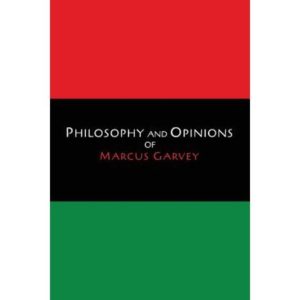
Marcus Garvey Quotes
A people without the knowledge of their past history, origin and culture is like a tree without roots.
Our success educationally, industrially and politically is based upon the protection of a nation founded by ourselves. And the nation can be nowhere else but in Africa
I regard the Klan, the Anglo-Saxon clubs and White American societies, as far as the Negro is concerned, as better friends of the race than all other groups of hypocritical whites put together.
The Black skin is not a badge of shame, but rather a glorious symbol of national greatness.
There shall be no solution to this race problem until you, yourselves, strike the blow for liberty.
Our success educationally, industrially and politically is based upon the protection of a nation founded by ourselves. And the nation can be nowhere else but in Africa.
Africa has become the big game of the nation hunters. Today, Africa looms as the greatest commercial, industrial and political prize in the world.
Marcus Garvey Biography
Marcus Mosiah Garvey Jr. was born in St. Anns Bay, Jamaica on August 17, 1887 as the – of 11 children. Sadly, only one other sibling survived to reach adulthood. He is the first recipient (posthumously) of the Order of National Hero in Jamaica for his contribution to the upliftment of Africans in the diaspora.
Marcus Garvey was a Black Nationalist, founder and first President-General of the Universal Negro Improvement Association, Pan-Africanist, publisher, journalist, editor, activist, orator and entrepreneur.
Parents: Marcus Garvey sr (mason) and Sarah Anne Richards (domestic help)
Education: Studied law and philosophy at Birkbeck College and University of London
Married twice:. Amy Ashwood Garvey Amy Jacques Garvey
Children: Marcus Mosiah Garvey, III, Julius Winston
Garvey died on June 10, 1940 in London, England. Age 52.
Marcus Garvey Books
Garvey left the legacy of his philosophies in the books he wrote. Some of the most popular written works are:
The Marcus Garvey and Universal Negro Improvement Association Papers. Message to the People: The Course
The Philosophy and Opinions of Marcus
Marcus Garvey Life and Lessons: A Centennial Companion to the Marcus Garvey and Universal Improvement Papers.
Epilogue
These are just a few of the works of one of the greatest black philosopher of the twentieth century: Marcus Mosiah Garvey–We see a new Ethiopia, a new Africa, stretching her hands of influence throughout the world, teaching man the way of life and peace, The Way to God. –Marcus Mosiah Garvey. Sadly, like Moses, Garvey did not get the opportunity to enter Africa before he died.
We hope that you found the information above interesting and informative. All of the content used on our website is original and created especially for the educational uplifment of our visitors. This includes our images such as the sketch you see above created exclusively for our website. Please visit our online store to purchase items commemorating the great honorable Marcus Garvey and other African Warrior Scholars. Thank you for visiting!
Abibifahodie,
The AWS Team
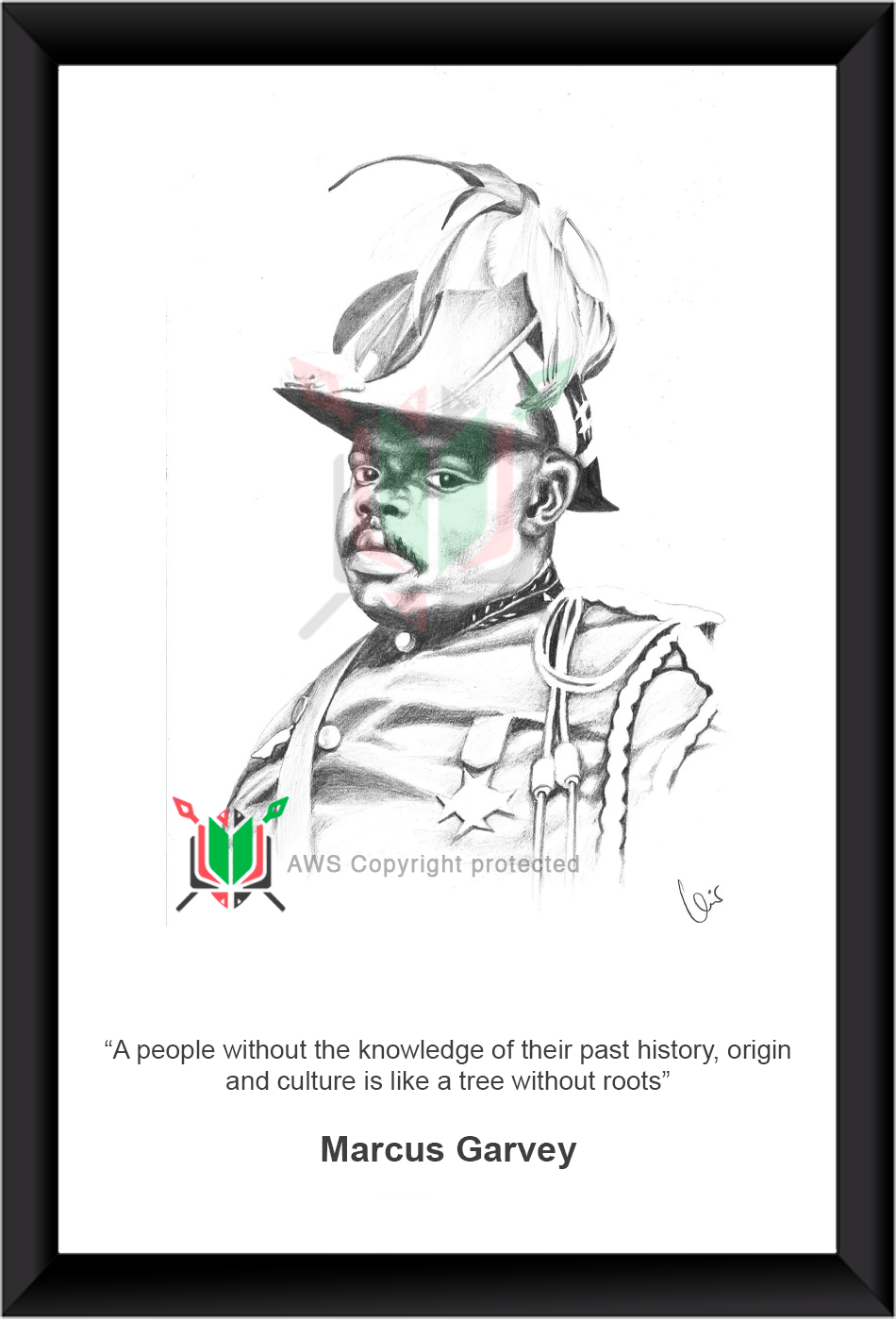
Marcus Garvey Custom Quote Sketches
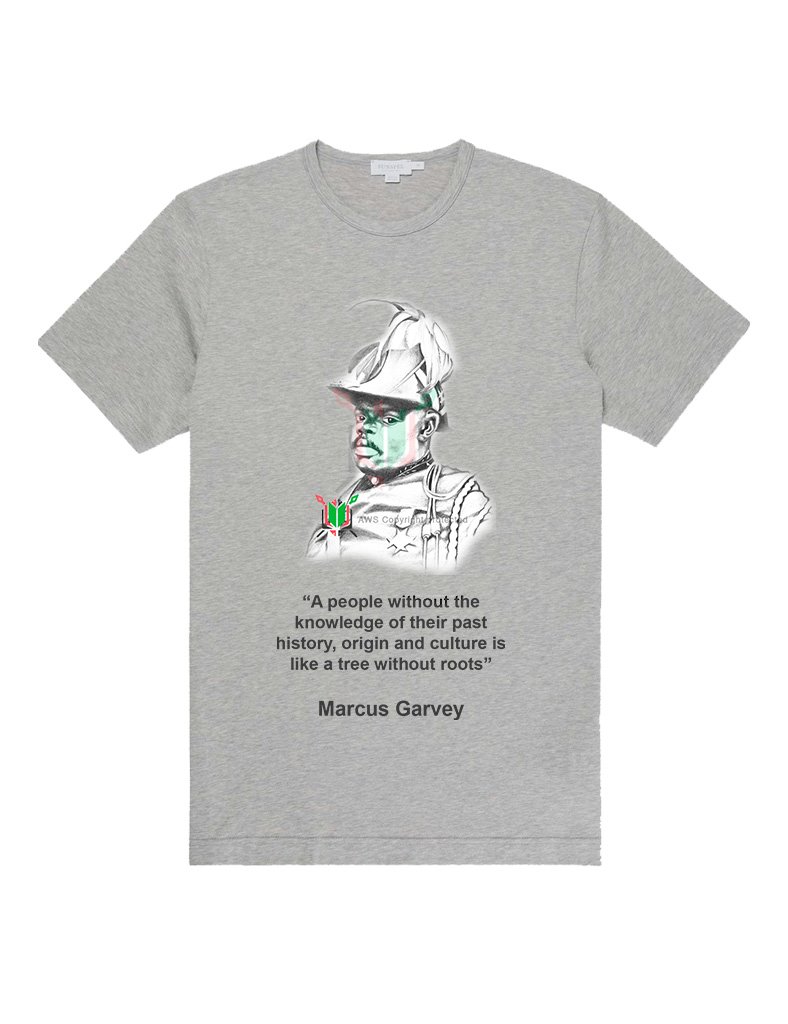
Marcus Garvey Custom Quote T-Shirts

